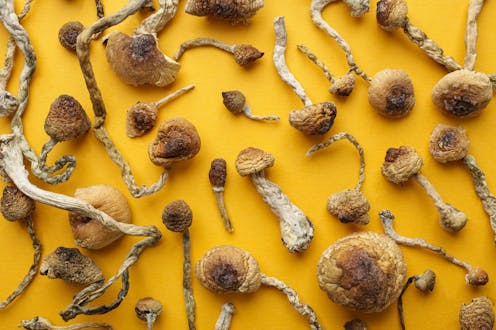There are fundamental flaws in psychedelics research. But I’m still intrigued by their potential.

Since I was young, I have been intrigued by altered states of consciousness, such as out-of-body experiences, paranormal phenomena and religious visions. I studied psychology and neuroscience to gain a better understanding of how these experiences come about. And in my scientific career, I have focused on the question of why some people are more prone to having these experiences than others.
Naturally, when I came across psychedelic science a couple of years ago, this field also sparked my academic interest. Here was an opportunity to study people who had a psychedelic experience and who claimed to have had a glimpse of ultimate reality. I started to research psychedelic experiences at Leiden University and founded the PRSM lab – a group of scientists from different academic backgrounds who study psychedelic, religious, spiritual and mystical experiences.
Initially, I was enthusiastic about the mind-transforming potential of psychedelics. These substances, when administered correctly, appear to be capable of enhancing people’s mental and physical wellbeing. They also increase feelings of connectedness to and concern for the environment.
Psychedelic therapy appeared to offer great potential for treating a wide variety of disorders, including depression, anxiety, addiction and post-traumatic stress disorder. This enthusiasm about the potentially transformative effects of psychedelics was reflected in positive media attention on this topic over the past few years. Michael Pollan, an American author and journalist, has brought psychedelics to an audience of millions with his book and Netflix documentary.
However, my initial optimism about psychedelics and their potential has changed into scepticism about the science behind much of the media hype. This is due to a closer scrutiny of the empirical evidence. Yes, at face value it seems as if psychedelic therapy can cure mental disease. But on closer inspection, the story is not that straightforward.
The main reason? The empirical evidence for the efficacy of and the working mechanisms underlying psychedelic therapy is far from clear.
I wrote a critical review paper with my colleague Eiko Fried in which we listed the problems with the current clinical trials on psychedelic therapy. The main concern is called the “breaking blind problem”. In psychedelic studies, patients easily figure out if they have been randomly assigned to the psychedelic or the placebo group, simply because of the profound mind-altering effects of psychedelic substances.
This breaking-of-the-blind can actually result in placebo effect in patients in the psychedelic group: they finally get the treatment they’d been hoping for and they start feeling better. But it can also result in frustration and disappointment in patients assigned to the control group. They were hoping to get a miracle cure but now find out they will have to spend six hours on a placebo pill with their therapist.
As a consequence, any difference in therapeutic outcomes between the psychedelic and the placebo group is largely driven by these placebo and nocebo effects. (A nocebo effect is when a harmless treatment causes side-effects or worsening of symptoms because the person believes they may occur or expects them to occur.)
Knowing who received what also affects the therapists, who may be motivated to get more out of the therapy session if their patient got the “real deal”. And this problem is impossible to control for in so-called randomised controlled trials – still the gold standard in evaluating the effectiveness of drugs and treatments.
Also, non-clinical research on psychedelics faces problems. You may recall the graphic of a brain on psilocybin compared to one on a placebo (see below). Psilocybin increases the connections between different brain areas, which is represented in a colourful array of connecting lines.
This has become known as the “entropic brain hypothesis”. Psychedelics make your brain more flexible such that it returns to a child-like state of openness, novelty and surprise. This mechanism in turn has been hypothesised to underlie psychedelic therapy’s efficacy: by “liberating your brain” psychedelics can change entrenched and maladaptive patterns and behaviour. However, it turns out the picture is much more complicated than that.
Psychedelics constrict the blood vessels in your body and brain and this causes problems in the measurement of brain signals with MRI machines.
The graphic of the entropic brain may simply reflect the fact that the blood flow in the brain is dramatically altered under psilocybin. Also, it is far from clear what entropy exactly means – let alone how it can be measured in the brain.
A recent psilocybin study, which is yet to be peer-reviewed, found that only four out of 12 entropy measures could be replicated, casting further doubt on how applicable this mechanism of action is.
Although the story about psychedelics freeing your mind is compelling, it does not yet square well with the available empirical evidence.
These are just two examples that illustrate why it is important to be really cautious when you evaluate empirical studies in psychedelic science. Don’t trust findings at face value, but ask yourself the question: is the story too good or too simple to be true?
Personally, I have developed a healthy dose of scepticism when it comes to psychedelic science. I am still intrigued by psychedelics’ potential. They offer great tools for studying changes in consciousness. However, it is too early to conclude anything definite about their working mechanisms or their therapeutic potential. For this, we need more research. And I’m excited to contribute to that endeavour.
Michiel van Elk receives funding from the Netherlands Organization for Scientific Research (NWO; grant id# VI.Vidi.191.107).